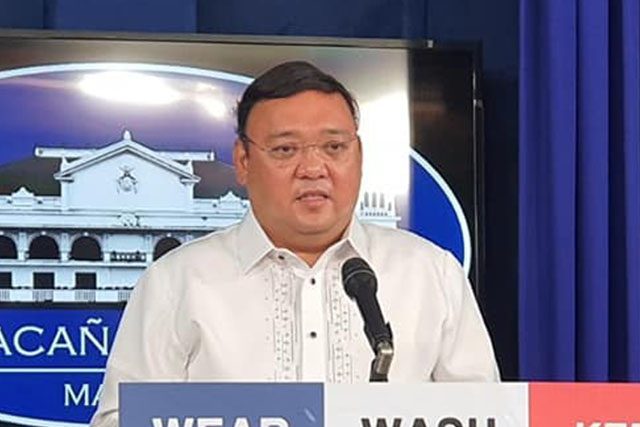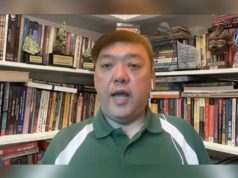
Filipinos reminded presidential spokesperson Harry Roque that President Rodrigo Duterte is a public servant who is supposed to act on the interest of people following his remarks that experts should privately course their recommendations to the government instead.
Roque in a televised interview on Wednesday said that the chief executive should be free from public pressure in terms of making critical decisions concerning the ongoing novel coronavirus pandemic.
“If you noticed, whenever there is a change in classification, the IATF (Inter-Agency Task Force) makes a recommendation to the President. We never publicize what the recommendations are, and we allow the President to make his decision,” the spokesperson said in CNN Philippines’ “The Source,” referring to the decision on quarantine levels.
“Why is it important that these recommendations not be made public? Because it will enable the President to make the correct decision even if it may be an unpopular decision, and that is why we have had this consistent policy of (letting) the President decide,” Roque added.
He said that they could only “gather the data” and “present it to him” in a private manner since any recommendation that is publicly made has the tendency “to influence the president” since there would be “public opinion generated from the recommendation.”
“We want the President to make the right decision without pressure from public opinion,” Roque added.
“The President should be given the leeway to decide, to make the correct decisions without being influenced by public opinion. And of course, you generate public opinion if you publicly make known your recommendations,” he further said.
Roque acknowledged that the OCTA Research Team is giving out its recommendations to the government without pay but added that it was only a personal appeal he made to the group.

Some Filipinos did not take the Palace official’s words lightly and pointed out that Duterte is a public servant who was democratically elected by the people themselves.
“He’s a public official. He should be open to scrutiny based on his policies,” a Twitter user said in response to Roque’s remarks.
“Hahahaha. Public SERVANTS kayo ‘di ba? You work for the people. Expect pressure from public, your bosses,” another online user said.
“He’s the President of the Philippines. His decisions affect the state of the nation,” a Filipino likewise pointed out.
“He ran for public office so he should not be impervious to public pressure. Can’t take the heat? Get out of the kitchen,” writer-editor Stefan Punongbayan said.
Of governance, evidence-based policies
Duterte, as the highest-ranking public official of the land, is constitutionally mandated “to serve and protect the people,” being elected by the Filipinos themselves.
He is also expected to oversee the “maintenance of peace and order, the protection of life, liberty and property, and the promotion of the general welfare” of the nation, according to constitutionalist Joaquin Berna.
Meanwhile, a president’s spokesperson forms part of the national government’s communication arm and speaks on behalf of the chief executive. He is also the primary source of information regarding current issues and concerns related to the president.
Roque earlier said that OCTA Research Team, which consists of experts from the University of the Philippines and the University of Santo Tomas, should refrain from publicizing their recommendations to the government on quarantine classifications.
The research group had recommended to place the towns of Bauan in Batangas, Calbayog in Western Samar, and General Trias in Cavite on stricter quarantine measures based on an increase in the “daily attack rate” of the coronavirus in the areas.
However, one of its members said that they have been doing forecasts of the COVID-19 situation and giving recommendations to the Palace as an act of “public service.”
“I’m not sure if people are aware but we’re not actually commissioned for this, we’re not paid by the government [nor] anyone,” professor David Guido said in an interview.
Another member, professor Ranjit Singh Rye, said that they would still publicize their recommendations since they are accountable to the people.
He added that it is the group’s role to educate citizens and make them aware of the COVID-19 situation.
Rye likewise said that publicly sharing recommendations would make citizens act responsibly amid the threat of the virus, especially as different sectors continuously loosen its restrictions for the sake of the economy.
Evidence-based policies are crucial in helping people make well-informed decisions in their day-to-day lives, especially amid an ongoing pandemic.
“Evidence-based policy also makes explicit what is known through scientific evidence and importantly, what is not known,” a post from a London-based public research university on its website reads.
The institution notes that science-based policies are important for good governance and for effectively delivering public services.
It also empowers people since it takes into account their needs, which in turn provides a strong sense of democracy in society.









